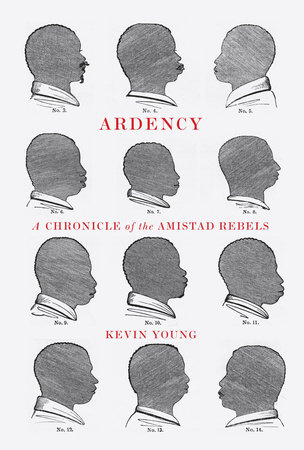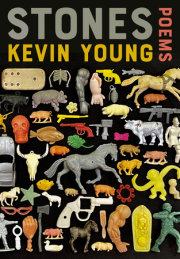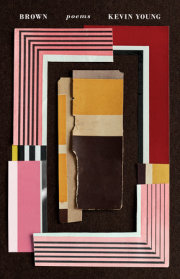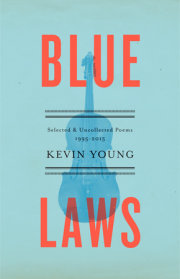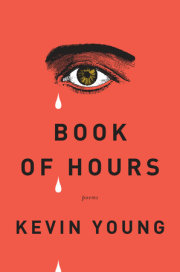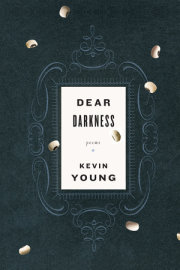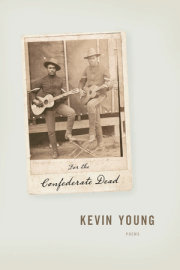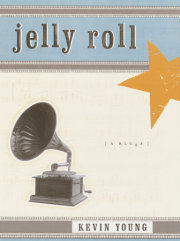Chapter 1
Book-Keeping
Lomboko, Sierra Leone
1. Expenses Out.
Cost of Tecora, a 90-ton schooner $ 3,700 00
Fitting out, sails, carpenter and cooper's bill 2,500 00
Provisions for crew and slaves 1,115 00
Wages advanced to 18 men before the mast 900 00
" " to captain, mates, boatswain, steward, cook 440 00
200,000 cigars and 500 doubloons, cargo 10,900 00
Clearance and hush-money 200 00
2. Expenses Home & In Havana.
Captain's head-money, at $8 a head $ 1,746 00
Mate's ", Captain and Crew's wages 3,811 00
Government officers, at $8 per head 1,736 00
My commission on 217 slaves, expenses off 5,565 00
Consignee's commissions 3,873 00
217 slave dresses, at $2 each 434 00
Extra expenses of all kinds, say 1,200 00
3. Returns.
Value of vessels at auction $ 3,950 00
Proceeds of 217 slaves 77,469 00
Total returns $ 81,419 00
"expenses 38,120 00
Net profit $ 43,299 00
BUZZARD.
And it came to pass at the end of forty days, that Noah opened
the window of the ark which he had made:
And he sent forth a raven, which went forth to and fro, until
the waters were dried up from the earth.
--Genesis 8:6-7
Exodus
Gabriel, Escalastio, Desiderio,-in the seas beneath
the States, names new & Christian fell around you
like the lash. Before slavery, ten suns from water open
as a wound, you say you belonged to nothing
but home. Your back bore only spirit's teeth, scars
that meant manhood. Such rites of passage
protected little:-with in one moon you fared
no better than a slaver's shifting cargo of looking
glasses, olives. Out of boredom or freedom
of movement, the crew took a poker from under bitter
plaintains,-carved Captain's f into Cabin Boy's shoulder.
Parched as you were, would you have sipped the rum
& gunpowder smeared in that wound to make sure
it would brand? A few mad, swollen tongues caught
the saltwater Cabin Boy's good arm tossed. Was it
sanity drove cousin Fu-li to edge over the casket
of fresh water, lend it his own throat? Catching
him wet-lipped, Captain's men fed home
the whip:-even now you can hear his skin part,
can tell how much his body was water, how much
spine was book, just asking to be opened, read.
Covey
Hijacked on The War Road, my birth
name, each sun I walked in Africa
was a forgetting, each step a bird
song gone. Three men stole me:-a boy,
a bad dice roll, a debt traded for guns
& doubloons. I was to be like you, a slave
bowing to fields of sugar, a rebel raising
cane,-only a man-o-war turned my slaver
around, set me to work in Freetown
a servant. Anglicans christened me a small riot
of guineas,-half-Brit, half-bird, as Covey I served
Her Majesty's Buzzard, feeding off ships caught
& replanted, as I'd been. New World, eagle shore,
your abolitionists found me by counting:-one
versed in classics scoured the docks, parroted eta,
fili, wafura to every black face. Other hands laughed,-
to me those words held home, meant one, two, five,
free. From the wings I emerged:-step right up ladies
& Africans, feast your eyes on this Most Divine
Two-Tongue Man! Once Kaw-we-li, now Scavenger
of the Word, voice covering yours, I circle above.
Misericordia
Havana, Cuba
I hear you can buy a man
there easy as a name,-just check
the bottoms for red, telling
sores, examine teeth for words
like runaway, no. Your titles may
already bring you Spanish wine, or
quadroons in New Orleans gambling
halls, but Havana holds too many
Dons & men named for saints to take
such currency. Far off in the dark
continent, bars translate into goods,
a man's height in cotton, even kegs
of rum only fit for those negro backs
that taste the cat. This island speaks
only silver. One fifteen-dollar-a-head hand-
shake with Governor General can turn all
of Africa into ladinos, slaves born in Cuba
decades ago. The right signature
can make the youngest girl nineteen,
Christian, yours:-anything but white
or willing.
Cut-Up
Stop me if you've heard this one
before:-on a low, long, big black
boat, hunger follows you like sharks
along the Middle Passage. Oceans trail
blood & overboard brothers. You know
little about men who live at sea,
these white termites hoarding crumbs
for winters which never arrive. You
are the grasshopper men, locusts kept legless,
silent. Sold. Three days from Cuba, some body
steals over to Celestino, the rationing potato-
headed Cook, asks what does this routine of chains
mean? The griffin looks about for his master
& father, then leans closer to let you in
on some thing. Get this:-you'll be sliced, salted
& canned like laughter. His finger runs slow
across his neck, his body suddenly a tongue
even you can understand,-a joke on no body
but you. Here's a killer:-know why cannibals
don't eat clowns? Taste too funny. Your faces
never break, stay black as comedy.
Advent
You tell me you never answer to lion
or boy, tho the papers have called
you Jinqua, Singbe, Cinquez,
Sinner. You stay cold as ever
in your naked cell, refusing the grey
robes this Union wished you in.
I have seen enough heads read lately
to know yours will make even fools
famous, hands translating your body
in lectures, from podiums, where such
an African skull, well-formed, is seldom
to be seen-doubtless in other circumstances
an honor to his race. At sea, your masters
must have dreamt that crown would buy
them islands. They named you Joseph, step-
father to the Lord, slept & saw you bring Mary,
laboring, on a mule. How could they have known
your son across the sea whose name you confide
means God? They woke to the sounds of Xmas,
your cane knife opening the heads of lords
& mulattoes, like wisdom, molasses beneath stars.
Questioning
Who among you knew the Crew
split after seeing Captain's head
spill open? Who heard the lashings
come undone, or saw the gripe
unhooked, the lifeboat slip silent
over the side? While you knived
who saw the scar their cutter
made in water, slashing a wake
toward horizon, unseeable
shore? Who beheld the Christ
in your master's mouths as they watched
the night grow arms & strike? Did you
swab the sticky deck? Count casualties
like the black stars drown in?
Did you expect to meet ardency,
that wanting of wind? Who supposed
the stern would slow, your seizing
break, or guessed your masters,
while you slept, sailed for Providence?
And who let your dead launch
overboard, thrown like a voice?
Friendship
During the mutiny your Masters must have heard
Captain & his mulatto Messboy go down the way
such family should, fighting, each splash the black wax
sealing an envelope. If it may please the court:-tho hidden
behind hungry barrels, the traders still ordered that boy,
Antonio, to toss you bread & allegiance. You found
your owners scared as stowaways on that boat baptized
Friendship,-bound them in chains to give a taste
of a slave's thirst. For days the fools refused to believe
property could be so bold. It was as if the beds they'd made
love to, their favorite muskets, grew blue with waiting
& woke. Unvexed, they wrote strange script to hand
any ships chanced upon; you sunk such letters
of death, unswayed. You say you sent anchors over
the same way, hoping to cease your drift, then turn round
toward family. When your sunburnt enemy called the sea
too deep to stop, you dove down far as lungs & doubt allowed,
emerged only with handfuls of blind, angelic fish. Little choice
but spare the cretins to navigate by scorpion, twin:-let them
steer your fellowship of thieves, give them all the water
they please, free them from irons, only thing ever they shared.
Sightings
Having freed yourselves you wandered
like a Jew:-least that's how them Spaniards
saw you,-liable, bloodied, & without Christ
to save. By day, under watch, the Dons
steered sunward; nights they reversed west
& lied, left your inquisitions unmoored
no matter what your threat. You saw
horizon & hoped it home, landed to fill
your casks,-even then sensing this shore unsafe.
Nosing north, hungry, you ate from the hold
raisins & jaundice & wine. Some ate only angels,
died. Ships with names like lovers,-Emmeline,
Blossom-sighted & tried boarding your bandaged
ship, balked at the muskets, the black you brandished.
Rumors like scurvy spread:-up & down the coast,
Custom Collectors warn of your ghost ship,-
The Flying African. One night you spotted a halo,
corposant, ringing the broken mast. San Elmo,
the Spaniards whispered, crossing themselves double:-
a sign. After, in halcyon, yellowed, even you began
to believe,-your eyes grown wide & without white.
Washington
You harbored the ship like a criminal, stole
ashore hungry. Even eastward of Providence
reports had drifted of the strange spook
ship:-most thot you pirates, skin
the flag you never flew,-black covering skulls
& bones, crossed. When you signed for food,
dogs, folks drew water polite as blinds, then
called the pigs. Only Green, freelance captain,
would trade you goods. Wanted to turn you in
to gold,-stopped since you promised more
on board. While he haggled, the Washington found
your ship flagless, drunk with sea moss,-
covered in rent bags & one recent corpse.
Lieutenant added it up:-slaves & a fortune
in salvage. He sent you to the 3-ft. hold where Cinque
filled his belt with gold, leapt over the side. Sank. Swam out
of reach, an hour, while the brig searched. Drowning
the necklaces, surrendered himself. Reeled in, manacled,
Cinque pictures the necktie party the G-men got planned,-
I shall be hanged, I think, every day,-tongue flapping
a weather-beaten banner, pants full of freedom, soilt.
Experiment
Lieutenant swore you in on board
the Experiment, reading your Spanish names
like charges against you:-Paschal, Santaria,
Saturnio, Hipiloto. The right to remain
et cetera. Anything you say is in Mendi, mute
to them. I can only imagine & read what
the Spaniards you'd saved, sworn in, said:-
These chattel were born in Cuba, bozales bred
to be sold, not stolen. Recollect
who struck me but not the man saved me.
Had no wish to kill any of them, Lieutenant,
prevented them from killing each other. Asleep
I saw the whole thing. Did not know how many
days we were out. We kept no reckoning.
Soon you Mendi will holler with speech
of your own, saved like a dollar
or a soul:-Can I get a witness? Hands
on stacks of Bibles, you'll plea bargain
God. Leaping like faith,
O how you'll testify:-
Chariot, swing low, my, my.
Greeting
When we meet you grip my hand
as you drown,-say you never knew skin
even brown, could be so pale, polite.
You feel & fear you'll be turned in
side out. Jail's a far cry from those moons,
thirsting, you burnt up on ocean:-here
days dole sun stead of water.
Before stolen & set sail I never knew
any hue but the one you still wear,
that carbon some fools once tried
scrubbing off me at sea. I've since grown
used to being a shipman:-sea dog,
first mate, the chaste black sheep.
Shed more of me than you could
know. Boys, I been so long
upon the moors I've begun to feel
like one,-some poor painted Shake-
speare speaking tongues
not his own. If ever you read
my mind, or palm, you'd know this
shade hides a hot place, eclipsed.
Blackmarket
In the square vendors hawk your tale:-
the Africans are the lions of the day,
well-fed. Men fence colored etchings
of blacks opening the Captain's head.
In that market called flea, you fetch
a handsome fee,-ready to frame. Your names
hit The Bowery stage before you take
the stand, actors in cork putting on the mutiny
as musical:-Zemba Cingues, the savage
noble; Cudjo, a deformed Dumb Negro;
the fair damsel Inez, necessary, invented.
The Black Schooner rakes in thousands
while you wait captive as an audience
of assassins. In this market called free
you cost one-shilling to see. The whole county flocks
to watch you at play, a flea circus somersetting
the prison Green. Warden claims the proceeds
for your bail & newspaper reviews of jail
go well:-They crouch like tailors, teeth like stars
in inky faces, black headlines blare. No one dares
how you still may be sold, stolen like a scene.
Tank
The abolitionists seek to school you
like fish. One cell over the girls weep,
share their grave-narrow bed. This Jail
Cinque wants to say, is almost worst
than the Drink. Solitary is one tank
without the think, his body
only evidence. The other men unwell,
sick as home. Days later, let out with sun,
they roll cartwheels in the yard
to tell they're alive. In the pen, still
fettered, Cinque stays under surveillance
as if water,-the kind that gathers
on the brain. He's going down a third time
but no one sees him wave.
Who wouldn't want to join Davey Jones,-
he musta been black with a name
like that-little wonder he went overboard,
locked up drum-tight. Still, it hushed us all
when Foone followed suit:-a strong swimmer
by all accounts, he waded out with his weighted-
down heart, never saw our shore again.
Eyetooth
Seems like every day another curator
or ivied student comes to draw
the captives like blood, render them
in profile,-varnished, unreadable coins.
Today the leech doctors decide Konoma
isn't cannibal, that his bucked out
& filed teeth crave nothing besides
English. New Haven dailies report:-
one said to belong to the man-eating
Caronmanche tribe denies, as well
as we could understand, ever tasting
human flesh. His quick tongue, not Mendi,
confuses even me. He points out diamonds
tattooed to his fore head, makes me know
he keeps many names. I exchange that
a specialist can pull his jaw, will rein
his incisors for nothing. There certainly is
far more destructiveness in the look
of his protruding mouth than caught up
in his brain. The one we call Nazha-u-lu
smiles, refuses, turns the other tooth.
Findings
Before bed I read out the book that bares
news of Cinque's skull:-The captive appears
to have twenty-six years of age, a temperament
sanguine and bilious; the bilious predominates.
His head is over two feet from nose's root
to the Meatus Auditorius, a hand's width
at destructiveness. Fletcher, phrenologist
to the Queen, hunts Cinque's head like lice,
finding his faculties hope, esteem, firmness,-
very large. No shrink asks me to bow like prayer
to search me for genus,-my smart box hidden by hair
& hand kerchief. Caution, combat, adhesion, order,
philoprogenitiveness, individuality, eventuality, causality,
secrecy, language,-average. Better to be read badly
or remain undiscovered? Veneration, form, wonder,
comparison, inhabitiveness, benevolence,-large. I fear,
unlike Fletcher, I may never touch genius or learn
what men's heads hold. Acquisition, imitation,
ideals, mirth, number, size, weight, time, tune,
color,-moderate, small. Could this be my fate,
my invisible art, to translate an opaque race?
Easter
Father:-I regret not having
sent word sooner. Here the Mendi
have begun to crack my knuckles
in greeting, to trust my words
like birds settling back on the branch
of my tongue,-forked, divining.
They write & learn things
quick as death. This makes me good,
reminds me how you adopted
& raised me like the dead, learning me
to say pardon to every passing
soul. Still, my interpretations loom less
necessary daily. Every letter they send
a sail, drawing home near.
I fear most the waking, watching them
leave to discover their own sun
& country. My sir, must we stand
to bring up what deserts us? Too soon,
it seems, I must close. May my words
reach you in manners I never can, crossing
boundless blue between. Yours, I remain,-
Copyright © 2012 by Kevin Young. All rights reserved. No part of this excerpt may be reproduced or reprinted without permission in writing from the publisher.

